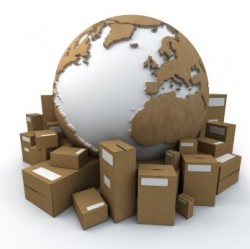SPECIAL EDITION - SUSTAINABLE PACKAGING
Investment in sustainable packaging essential, says study

Consumer demand, the need for the industry to be seen as responding to green concerns and the necessity to keep up with competitors, means packaging and food manufacturers, as well as retailers are “going to have to invest in some sort of ethical and sustainable packaging”, declared the report.
The study underlines how the abilty to develop, produce and market sustainable packaging is set to become of key significance across the supply chain.
In its consumer surveys carried out in 2008 and 2009, the company found that 25 per cent of global consumers said products with reduced packaging had a high or very high degree of influence over their purchases, with the same number saying they bought such goods most or all of the time. The review found that concern over such issues was highest in the United Arab Emirates, Saudi Arabia and India, followed by Australia, France, the UK and Germany. Consumers in Japan and the Netherlands and Sweden indicated such issues would influence them least, said Datamonitor.
While the authors acknowledge that packing is not a primary motivator in choosing purchases, they cautioned that companies risk alienating both existing and new customers if they ignore the issue.
The study - Offering Ethicality and Sustainability in Food and Drinks - finds that getting packaging right can help convince “cynical” consumers that a product’s ethical claims are real.
Highly visible
The rise of the importance of sustainability has seen packaging become a common target for criticism among consumers and green campaigners. A reason for this is that the high visibility of packaging makes it easy for the public to reach a conclusion over their eco-credentials – or lack of them, said Katrina Diamonon, Datamonitor consumer market analyst.
“The more tangible nature of packaging allows consumers to actually see and feel the difference they are making,” she added. “Sustainable packaging is a claim that can be physically substantiated, rather than just supported by a stamp or logo which can draw considerable scepticism.”
Kraft Foods, which is one of dozens of major food and packaging companies taking part in the Global Packaging Project to boost sustainable packing, backed this view.
“Packaging is a great place to start because it's the first and last thing consumers interact with when they purchase any consumer goods,” Roger Zellner, company director of sustainability for research, development and quality, told FoodProductionDaily.com. “Likewise, in the food industry, packaging is something most companies have in common.”
Diamonon added that the most common changes of behaviour are those requiring the least effort or planning.
“Seeking recyclable and sustainable packaging is relatively simple measure consumers can take to fight climate change”, she said.
The report identifies a “significant disconnect” between the importance consumers attach to buying ethical products – at 57 per cent - compared to the number that said they actually altered their purchasing habits as a result of this concern – only 42 per cent. But such disparity does not exist with regard to packaging where the proportion identifying packing as important was matched by the numbers who said they changed their buying habits to include products with reduced packaging.
Diamonon said: “Buying products with reduced packaging has obvious ethical implications, so this is becoming an increasingly popular way for consumers to translate their good intentions into action - a marketing technique that brands will need to continue to tap into if they wish to establish ethical credentials.”
The report also stresses that designing sustainability into packaging generates genuine operating efficiencies for manufacturers– such as reduced transport costs and waste resulting from utilizing less packing.
First step, shared responsibility
Zellner said the food industry could also use sustainable packaging as a springboard to “focus on other aspects of sustainability—and one's impact across the supply chain”.
“In the food industry, packaging tends to be a smaller part of the carbon footprint, but industry data is much more consistent and available,” he said. “Although each company will address packaging within their own internal systems and functions, it is also clear that packaging spans the entire value chain and packaging becomes a shared responsibility for all the trading partners in that chain.”




